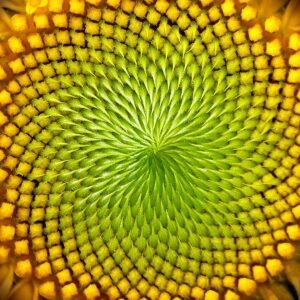Aleister Crowley, born Edward Alexander Crowley in 1875, left an indelible mark on the world of occultism and alternative spirituality. His life was a tapestry of controversy, intellectual pursuit, and spiritual exploration that continues to fascinate and influence people today. Crowley’s extensive writings and teachings, including works like “The Book of the Law” and “Magick in Theory and Practice,” form the foundation of Thelema, a philosophical and religious system he developed.

From his early years as a member of the Hermetic Order of the Golden Dawn to his later establishment of the Abbey of Thelema in Sicily, Crowley’s journey was marked by a relentless pursuit of esoteric knowledge. He integrated Eastern mysticism into Western occult traditions, creating a unique blend that would shape modern magical practices.
Crowley’s life was not without its share of scandals and personal struggles. His unconventional lifestyle and provocative teachings often put him at odds with society, earning him the moniker “The Wickedest Man in the World.” Despite this, his impact on contemporary culture and spirituality remains significant, with his ideas continuing to resonate in various New Religious Movements and artistic expressions.
Key Takeaways
- Aleister Crowley founded Thelema and authored influential occult texts.
- His life blended Western occultism with Eastern mysticism.
- Crowley’s controversial legacy continues to impact modern spirituality and culture.
Early Life of Edward Alexander Crowley
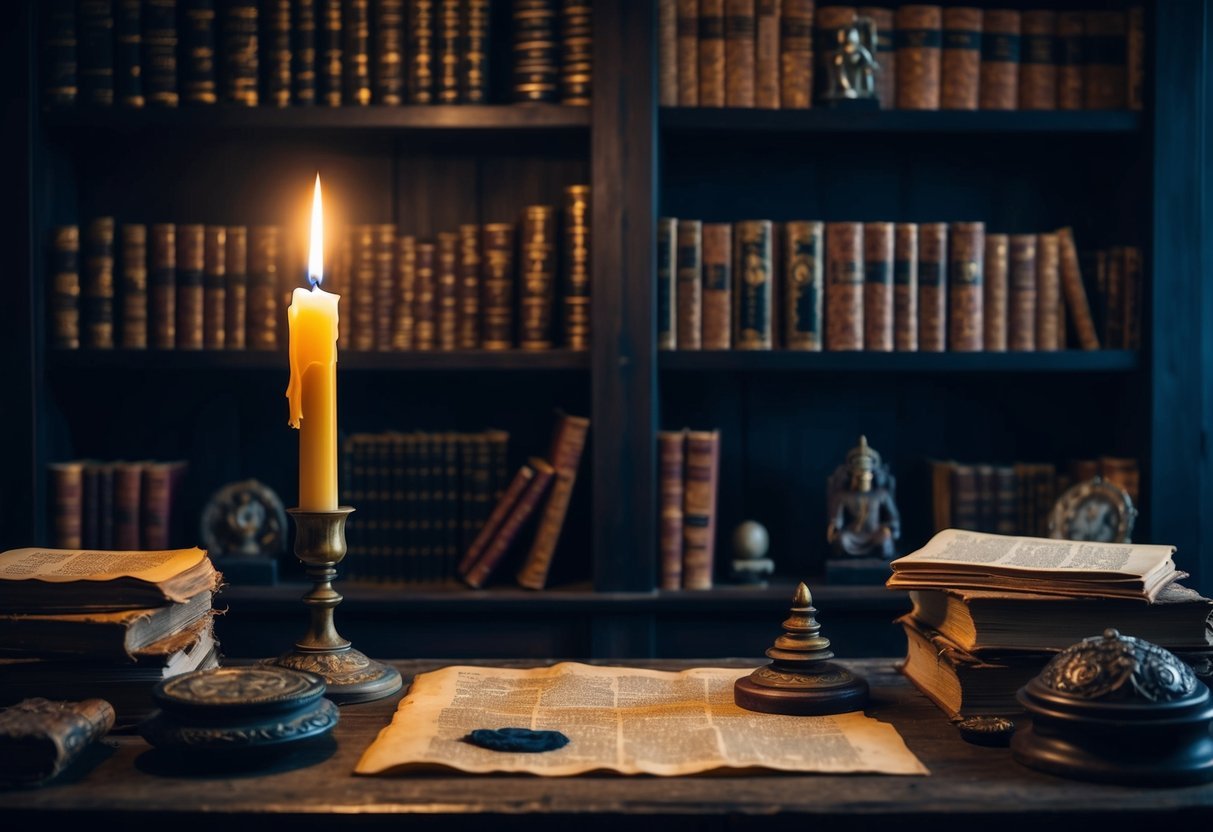
Edward Alexander Crowley, born on October 12, 1875, in Royal Leamington Spa, England, experienced a childhood deeply influenced by religious conservatism and family wealth. His early years shaped the controversial figure he would become.
Childhood and Family Background
Edward Alexander Crowley was born into a wealthy family. His father, Edward Crowley, was a preacher and owner of a successful brewing company. Young Edward’s mother, Emily Bertha Bishop, was a deeply religious woman.
The Crowley household adhered strictly to the teachings of the Plymouth Brethren, a conservative Christian movement. This upbringing exposed Edward to intense religious doctrine from an early age.
Tragically, Edward’s father died when he was just 11 years old. This loss had a profound impact on the young boy’s life and future outlook.
Education: Trinity College and the Plymouth Brethren Influence
Edward’s education began at home with private tutors. As he grew older, he attended several schools, including Malvern College and Tonbridge School.
In 1895, Edward enrolled at Trinity College, Cambridge. Here, he pursued his interests in literature and poetry. His time at Trinity marked a significant shift in his worldview.
Despite his academic pursuits, the influence of the Plymouth Brethren remained strong. Their teachings continued to shape Edward’s thoughts and beliefs, even as he began to question and rebel against them.
The Rise of an Occultist
Aleister Crowley’s ascent in occult circles began with his initiation into influential esoteric orders. He quickly rose to prominence through his prolific writings and establishment of new magical systems.
Initiation into the Hermetic Order of the Golden Dawn
In 1898, Crowley joined the Hermetic Order of the Golden Dawn, a secret society devoted to the study of occult, metaphysical, and paranormal activities. He advanced rapidly through the order’s grades, mastering its intricate system of ceremonial magic.
Crowley’s natural aptitude for occult practices became evident. He absorbed the Golden Dawn’s teachings on Qabalah, tarot, astrology, and ritual magic. His unconventional personality and ambition soon led to conflicts with other members.
Despite internal tensions, Crowley’s time in the Golden Dawn proved formative. He gained a deep understanding of Western esoteric traditions that would shape his later work.
Founding The A∴A∴ and Thelema
After leaving the Golden Dawn, Crowley founded his own magical order in 1907 called the A∴A∴ (Argenteum Astrum or Silver Star). This new organization synthesized various occult traditions with Crowley’s own innovative ideas.
Crowley developed the religious philosophy of Thelema, centered on the motto “Do what thou wilt shall be the whole of the Law.” He claimed to have received its foundational text, The Book of the Law, through divine revelation in 1904.
Through the A∴A∴, Crowley promulgated his system of Magick, which combined ceremonial rituals with Eastern practices like yoga. His prolific writings on occult topics cemented his reputation as a leading esoteric figure.
Major Works and Writings
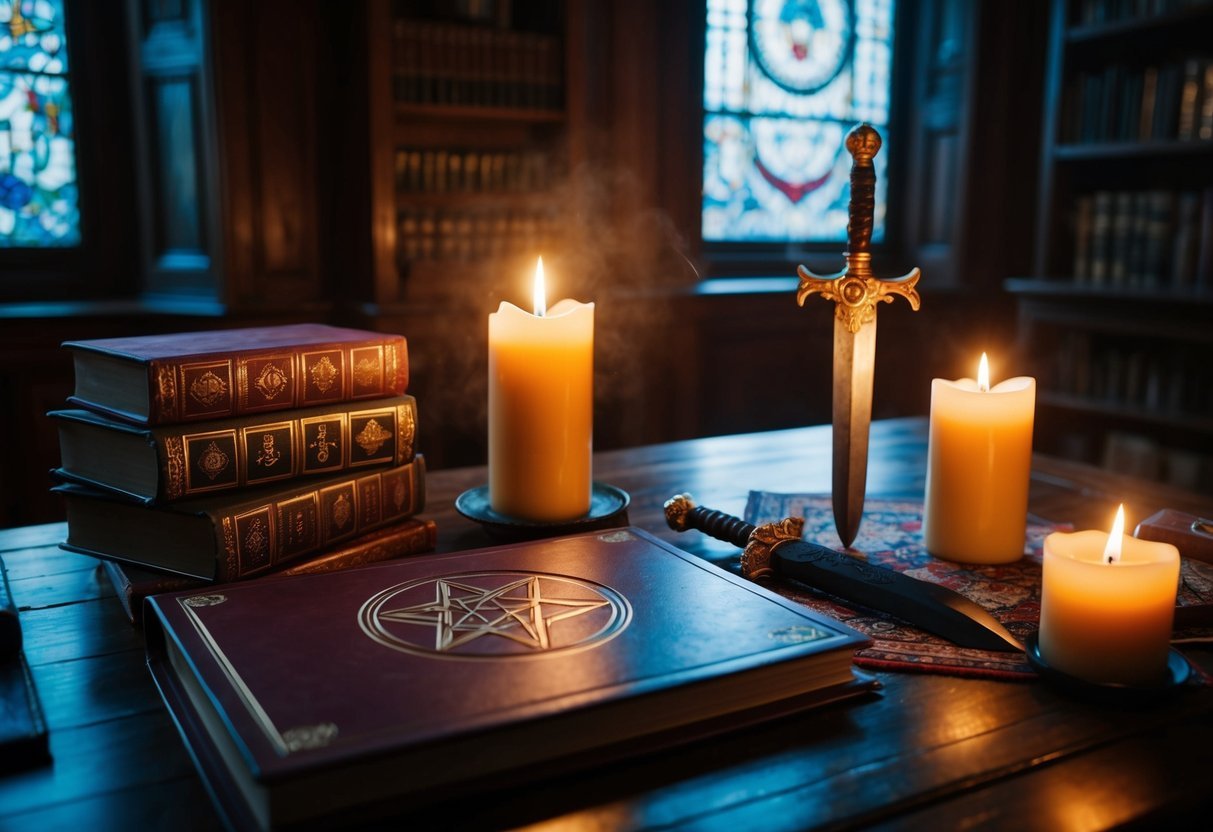
Aleister Crowley produced numerous influential texts that shaped modern occultism. His writings cover mystical revelations, magical theory, and esoteric wisdom.
The Book of the Law and Mystical Revelations
Crowley’s seminal work, The Book of the Law, was allegedly dictated to him by a praeternatural being named Aiwass in 1904. This text forms the central scripture of Thelema, Crowley’s spiritual and philosophical system.
The book proclaims “Do what thou wilt shall be the whole of the Law” as its central tenet. It outlines a new spiritual era and presents mystical cosmology.
Crowley spent years interpreting and expanding on The Book of the Law’s contents through additional writings and commentaries.
Magick in Theory and Practice
Published in 1929, Magick in Theory and Practice is Crowley’s comprehensive guide to magical practice. It presents detailed instructions on rituals, invocations, and occult techniques.
The book defines magick as “the Science and Art of causing Change to occur in conformity with Will.” It explores topics like astral projection, divination, and alchemy.
Crowley incorporates elements from various esoteric traditions, including Kabbalah, Yoga, and Egyptian mythology. The text remains influential in modern occult circles.
The Book of Thoth and Contributions to Occult Literature
Crowley’s The Book of Thoth, published in 1944, presents his interpretation of the Tarot. It provides detailed explanations of card symbolism and divinatory meanings.
The book accompanies Crowley’s Thoth Tarot deck, which he designed with artist Lady Frieda Harris. This tarot system incorporates astrological, Kabbalistic, and Egyptian elements.
Crowley authored numerous other texts on occult subjects throughout his life. These include 777 and Other Qabalistic Writings, The Vision and the Voice, and Little Essays Toward Truth.
The Practice of Magick and Rituals

Aleister Crowley developed complex systems of magick and rituals that became central to his occult philosophy. His practices incorporated elements from various traditions and often involved controversial methods.
Introduction to Thelema and Ceremonial Magic
Crowley’s magical system was rooted in Thelema, his religious and philosophical belief system. The central tenet of Thelema is “Do what thou wilt shall be the whole of the Law.” This principle guided his approach to ceremonial magic.
Crowley’s rituals often drew from Western European magical traditions. He incorporated elements from Kabbalah, Hermeticism, and Eastern mysticism into his practices.
The Tree of Life model formed the basis of much of Crowley’s occult work. He used this framework to structure rituals and organize magical correspondences.
Sex Magic and Drug Use in Ritual
Crowley controversially incorporated sex magic and drug use into his ritual practices. He believed these could be powerful tools for altering consciousness and achieving magical results.
His sex magic teachings emphasized using sexual energy to fuel magical workings. This often involved ritualized sexual acts with magical intent.
Drug use played a significant role in Crowley’s efforts to alter perception and access mystical states. He experimented with various substances, including hashish, cocaine, and peyote, as part of his magical explorations.
Crowley documented many of these practices in his magical diaries. These records provide insight into his experimental approach to ritual magic.
Aleister Crowley: The Poet, the Mountaineer, and the Philosopher

Aleister Crowley was a multifaceted individual who made significant contributions as a poet, mountaineer, and philosopher. His diverse pursuits and unconventional beliefs shaped his legacy in literature, adventure, and spiritual thought.
Literary Contributions and Poetry
Crowley’s literary output was prolific and varied. He wrote poetry from an early age, exploring themes of spirituality, mysticism, and human nature. His poetic works included “The Tale of Archais” and “Jezebel and Other Tragic Poems.”
Crowley’s verses often incorporated occult symbolism and esoteric references. He experimented with different poetic forms and styles throughout his career.
His most famous poetic work, “The Book of the Law,” became the central text of his spiritual philosophy, Thelema. This poem-like text outlined Crowley’s beliefs on personal freedom and spiritual growth.
Adventures and Mountaineering Exploits
Crowley was an accomplished mountaineer and alpinist. He participated in several notable expeditions, including attempts to climb K2 and Kanchenjunga in the Himalayas.
In 1902, he led an expedition to K2, reaching a then-record altitude of 22,000 feet. Though unsuccessful in summiting, this expedition contributed valuable geographical and climatic data.
Crowley’s mountaineering adventures often intertwined with his spiritual pursuits. He viewed climbing as a form of spiritual practice, testing physical and mental limits.
His climbing exploits earned him recognition in the mountaineering community, despite controversies surrounding his personality and beliefs.
Beliefs in Personal Freedom and Spiritual Autonomy
Crowley developed a philosophy centered on personal freedom and spiritual autonomy. His motto, “Do what thou wilt shall be the whole of the Law,” encapsulated this belief system.
He advocated for individual exploration of spirituality and rejected conventional religious doctrines. Crowley emphasized personal experience over dogma in spiritual matters.
His philosophy, Thelema, encouraged followers to discover and pursue their true will or purpose in life. This concept of true will was central to Crowley’s teachings on personal freedom.
Crowley’s ideas on spiritual autonomy influenced various new religious movements and contemporary culture. His emphasis on individual spiritual exploration continues to resonate with some seekers today.
Controversies and Personal Struggles

Aleister Crowley’s life was marked by numerous controversies and personal challenges that shaped his public image and private experiences. These struggles spanned his reputation, health issues, and financial difficulties.
Public Image as ‘The Wickedest Man in the World’
Crowley gained notoriety as “The Wickedest Man in the World”, a moniker that both intrigued and repelled the public. His unconventional lifestyle and occult practices drew intense criticism from conservative society.
Crowley’s teachings on liberated sexuality and experimentation with drugs fueled his controversial reputation. He openly challenged social norms and religious conventions, often provoking outrage.
His writings and public persona deliberately cultivated an air of mystery and danger. This image persisted throughout his life, overshadowing his intellectual contributions and spiritual explorations.
Substance Addiction and Health Issues
Crowley struggled with heroin addiction for much of his adult life. This dependency severely impacted his physical and mental health, as well as his relationships and financial stability.
He also suffered from chronic bronchitis, which worsened over time. The combination of drug use and respiratory issues took a significant toll on his overall well-being.
Despite these health challenges, Crowley continued his occult practices and writings. His substance abuse often intertwined with his spiritual explorations, blurring the lines between mystical experiences and drug-induced states.
Financial Troubles and Legal Disputes
Crowley’s lavish lifestyle and expensive occult pursuits frequently led to financial difficulties. He often relied on wealthy patrons or followers to support his endeavors.
Legal battles drained his resources further. Crowley faced lawsuits related to his published works and personal conduct, including libel cases and disputes over property.
His controversial reputation made it challenging to maintain steady income sources. As his notoriety grew, legitimate publishing opportunities became scarce, exacerbating his financial woes.
Crowley’s later years were marked by poverty and dependence on others. His financial struggles contrasted sharply with the grandiose image he had cultivated earlier in life.
The Abbey of Thelema: A Sanctuary for Occult Practices

Aleister Crowley established the Abbey of Thelema in Sicily as a place to put his occult teachings into practice. This experimental community became the center of his magical work and philosophy for several years.
Founding and Philosophy
In 1920, Crowley founded the Abbey of Thelema in Cefalù, Sicily. He chose this location after a vision he claimed to have received in Egypt. The Abbey served as a school for magick, where Crowley aimed to create a utopian society based on his philosophy of Thelema.
The motto “Do what thou wilt shall be the whole of the Law” guided life at the Abbey. Residents practiced rituals, meditation, and yoga. They also studied Crowley’s writings and participated in magical ceremonies.
Crowley designed the Abbey’s walls with vivid, often erotic murals depicting magical symbolism. These paintings reflected his beliefs about sex magick and spiritual enlightenment.
Scandals and the Cefalù Years
The Abbey quickly became notorious for its unconventional practices. Reports of drug use, sexual rituals, and animal sacrifices circulated in the local community and international press.
Crowley’s follower Raoul Loveday died at the Abbey in 1923. This event, combined with rumors of black magic, led to Crowley’s expulsion from Italy by Mussolini’s government in 1923.
Despite its short existence, the Abbey of Thelema had a lasting impact on occult history. It represented Crowley’s attempt to create a living laboratory for his magical theories and left a controversial legacy that continues to fascinate and provoke debate.
Organizations and Influence

Aleister Crowley’s impact extended far beyond his individual work, shaping occult organizations and influencing diverse fields. His teachings and philosophies continue to resonate in modern esoteric circles and popular culture.
Ordo Templi Orientis and the Expansion of Thelema
The Ordo Templi Orientis (O.T.O.) became a primary vehicle for spreading Crowley’s Thelemic philosophy. After joining in 1910, Crowley quickly rose to leadership, reforming the organization’s rituals and doctrines.
He incorporated Thelema into the O.T.O.’s teachings, expanding its influence globally. The organization grew significantly under his guidance, attracting followers drawn to his radical ideas and charismatic persona.
Crowley’s impact on the O.T.O. persists today, with branches worldwide continuing to study and practice his teachings. His writings remain central to the order’s curriculum and rituals.
Legacy in Occultism, Mysticism, and Western Esotericism
Crowley’s influence on Western esotericism extends far beyond the O.T.O. His writings and practices have shaped numerous occult and mystical traditions.
Many modern Pagan and Wiccan groups draw inspiration from Crowley’s work, incorporating elements of his rituals and philosophy. His ideas on magick and spiritual development continue to be studied and debated in occult circles.
Crowley’s impact is also evident in popular culture, influencing music, literature, and art. His unconventional lifestyle and provocative ideas have made him an enduring figure of fascination and controversy.
Aleister Crowley in Popular Culture
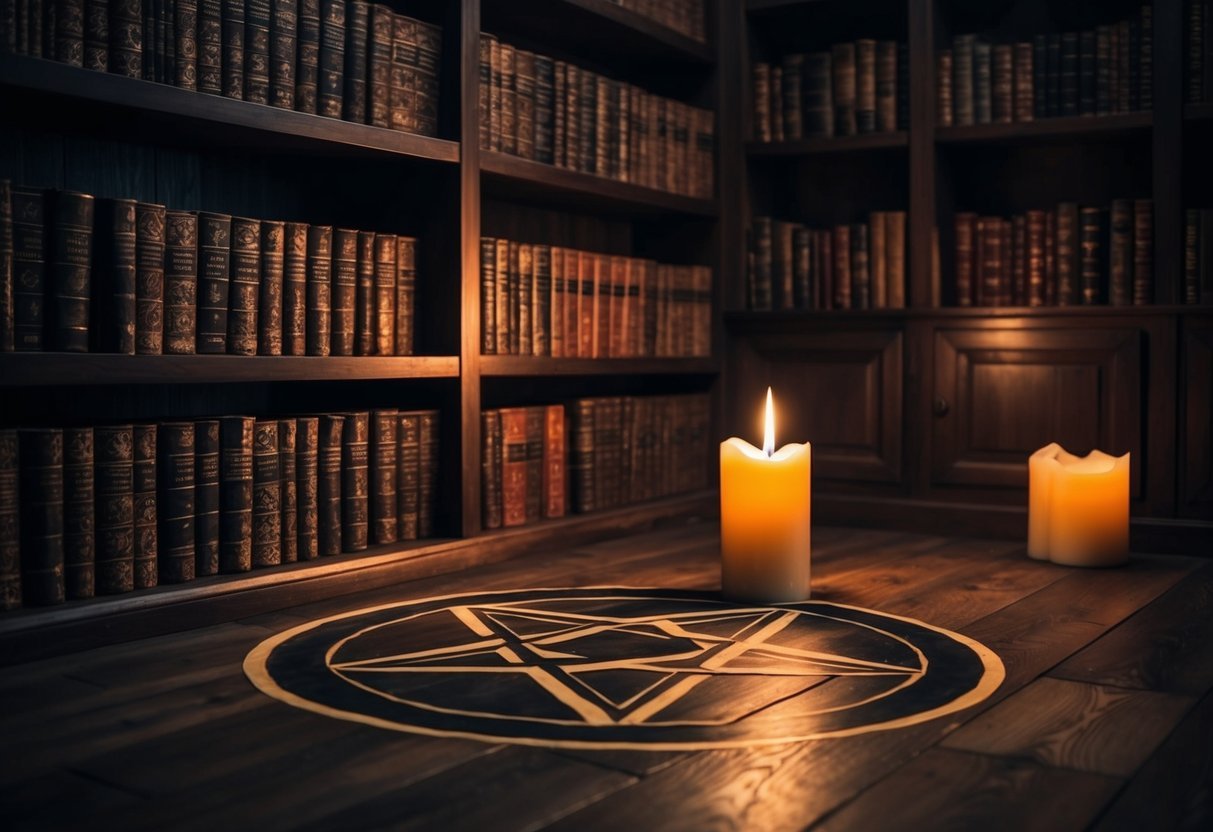
Aleister Crowley’s influence extends far beyond occult circles, permeating various aspects of popular culture. His enigmatic persona and controversial ideas have inspired countless artists, musicians, and writers.
Influence on Modern Music and Art
Crowley’s impact on music is particularly notable in rock and heavy metal genres. Led Zeppelin’s guitarist Jimmy Page showed a deep fascination with Crowley, purchasing his former residence and incorporating occult symbolism into the band’s work. The Beatles featured Crowley on the cover of their “Sgt. Pepper’s Lonely Hearts Club Band” album.
David Bowie referenced Crowley in his lyrics, while Ozzy Osbourne dedicated an entire song to him titled “Mr. Crowley”. Artists like Kenneth Anger and Austin Osman Spare drew inspiration from Crowley’s teachings, incorporating occult themes into their visual works.
Depictions in Films, Books, and Media
Crowley has been portrayed in numerous films and television shows, often as a mysterious or villainous character. The 1970s saw a surge in Crowley-inspired media, including the film “Chemical Wedding” and the novel “Moonchild” by him.
In literature, Crowley appears as a character in works by Somerset Maugham and Anthony Powell. Comic books and graphic novels have also featured Crowley, notably in Alan Moore’s “Promethea” series.
His image continues to be used in various forms of media, from documentaries exploring his life to fictional adaptations that reimagine his persona for modern audiences.
The Enduring Legacy and Impact on Modern Spirituality
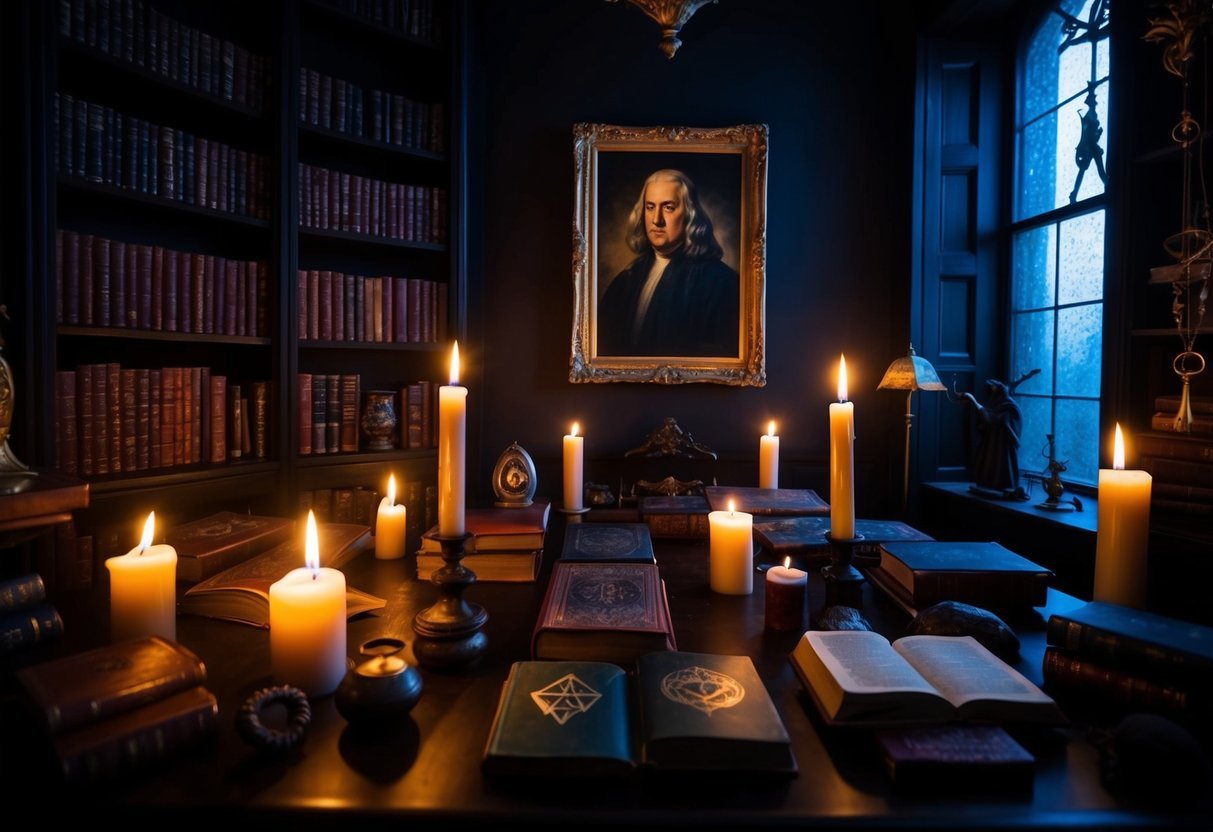
Aleister Crowley’s influence continues to shape occult practices and spiritual movements decades after his death. His ideas and writings have left an indelible mark on Wicca, modern occultism, and academic studies of esotericism.
Influence on Wicca and Modern Occultism
Crowley’s teachings significantly impacted the development of Wicca and contemporary occult traditions. Gerald Gardner, the founder of Wicca, incorporated elements of Crowley’s work into his new religion. This included adapting Crowley’s famous phrase “Do what thou wilt shall be the whole of the Law” into the Wiccan Rede.
Many modern occult orders and magical systems draw inspiration from Crowley’s writings and practices. His system of Thelema continues to attract followers worldwide. Crowley’s emphasis on ritual magic, yoga, and meditation has become standard in numerous esoteric groups.
Continued Interest: Biographies and Academic Studies
Crowley’s life and work remain subjects of fascination for scholars and the general public. Numerous biographies have been published, examining his controversial life and enduring influence on spirituality.
Academic interest in Crowley has grown significantly. Scholars analyze his writings, magical theories, and impact on Western esotericism. This academic attention has helped legitimize the study of occultism and alternative spiritualities within universities.
Frequently Asked Questions
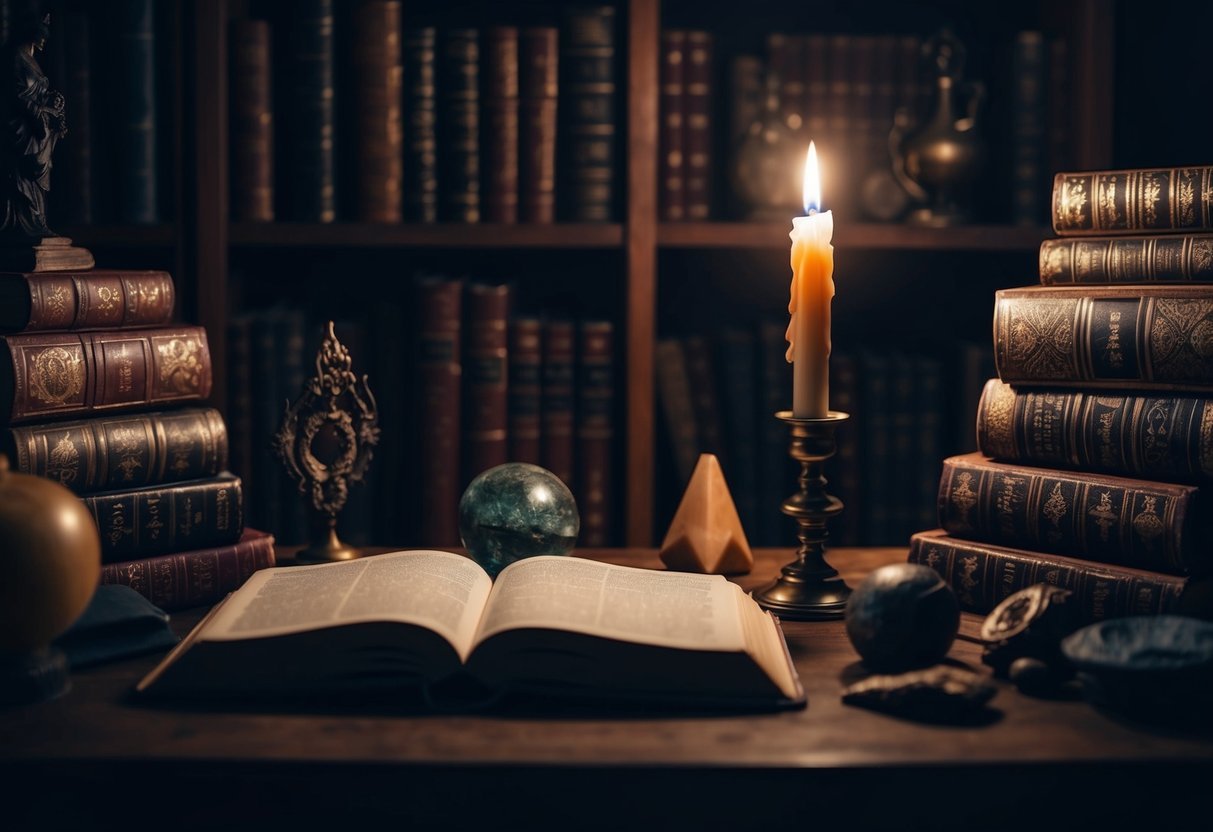
Aleister Crowley’s philosophy, writings, and life events shaped modern occult practices and influenced contemporary religious thought. His core principles, major works, and personal relationships played significant roles in his teachings and legacy.
What are the core principles of Aleister Crowley’s philosophy?
Crowley’s philosophy centered on the concept of Thelema, which means “Will” in Greek. He emphasized personal freedom and the pursuit of one’s true desires.
The primary tenet of Thelema is “Do what thou wilt shall be the whole of the Law.” This principle encourages individuals to discover and fulfill their unique purpose in life.
Crowley also promoted the idea of magick, which he defined as the science and art of causing change in conformity with will. He believed in integrating various spiritual and occult traditions.
How did Aleister Crowley impact modern occult practices?
Crowley’s influence on modern occult practices is substantial. He synthesized elements from Eastern and Western esoteric traditions, creating a comprehensive system of ceremonial magick.
His writings and teachings inspired numerous occult organizations and magical orders. The Ordo Templi Orientis (O.T.O.) and the A∴A∴ are two prominent groups that continue to practice Crowley’s methods.
Crowley’s work also influenced Wicca and Neopaganism, contributing to the revival of interest in alternative spiritual practices in the 20th century.
Can you outline the major events in Aleister Crowley’s life?
Crowley was born in 1875 in Warwickshire, England, to a wealthy family of Plymouth Brethren. His father’s death when Crowley was 11 had a profound impact on his life.
In 1898, Crowley joined the Hermetic Order of the Golden Dawn, a significant occult society. This marked the beginning of his formal magical training.
Crowley’s travels to Egypt in 1904 led to the reception of “The Book of the Law,” which became the foundational text of Thelema.
He established the Abbey of Thelema in Sicily in 1920, which became a center for his magical experiments and teachings. Crowley died in 1947 in Hastings, England.
What are some notable works written by Aleister Crowley?
“The Book of the Law” (Liber AL vel Legis) is Crowley’s most famous work, outlining the principles of Thelema.
“Magick in Theory and Practice” is a comprehensive guide to Crowley’s magical system, detailing rituals and philosophical concepts.
“The Book of Thoth” explores Crowley’s interpretation of the Tarot, including his design for the Thoth Tarot deck.
“777 and Other Qabalistic Writings” compiles Crowley’s research on numerology and Kabbalah.
How did Aleister Crowley’s teachings influence contemporary religious thought?
Crowley’s emphasis on individual freedom and personal spiritual exploration resonated with the counterculture movements of the 1960s and beyond.
His integration of Eastern mysticism with Western occultism paved the way for the New Age movement and increased interest in alternative spiritualities.
Crowley’s ideas about sexual liberation and the sacred nature of physical pleasure influenced modern attitudes towards sexuality and spirituality.
What is the significance of Aleister Crowley’s family and personal relationships in his work?
Crowley’s complex relationship with his devoutly religious father influenced his rebellion against traditional Christianity and his exploration of occult practices.
His numerous romantic relationships and unconventional lifestyle directly informed his teachings on sex magick and the role of desire in spiritual development.
Crowley’s experiences as a father and his views on family were reflected in his writings about the nature of will and the development of the individual.

